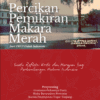I. The Precedent
The Commercial Court at the District Court of Central Jakarta (the Central Jakarta Commercial Court) has declared PT Djakarta Lloyd (Persero) ( Djakarta Lloyd), a state-owned company that engages in shipping business, under the status of suspension of payment (locally known as Penundaan Kewajiban Pembayaran Utang or PKPU) based on a petition filed by Julia Tjandra (as a creditor of Djakarta Lloyd). This is a precedent set by the Central Jakarta Commercial Court on the practice of the Law No. 37 of 2004 concerning Bankruptcy and Suspension of Payment (the Law No. 37 of 2004). This decision breaks the general assumption that it is almost impossible to impose court-sanctioned debt moratorium against a state-owned company despite the existence of legal basis to that effect. In practice prior to the PKPU declaration of Djakarta Lloyd, statistics show the court had been reluctant to grant PKPU petition against state-owned companies.
Prior to issuing a decision declaring Djakarta Lloyd under the status of PKPU, the Central Jakarta Commercial Court had previously rejected the first PKPU petition filed by Julia Tjandra and also the bankruptcy petition filed by NV De Indonesische Overzeese Bank (Indover Bank), both on the grounds that the capital of Djakarta Lloyd is wholly owned by the state. In response to such rejection, Julia Tjandra submitted a second PKPU petition by asserting that Djakarta Lloyd is not subject to Law No. 19 of 2003 concerning State-Owned Company (the Law No. 19 of 2003). She reasoned that Djakarta Lloyd is subject to compliance with the Indonesian Company Law (the Law No. 40 of 2007 concerning Limited Liability Company), given the evidence that Djakarta Lloyd’s objective is to gain profits as clearly stated in its articles of association. Based on the aforementioned grounds, the Central Jakarta Commercial Court granted the second petition of Julia Tjandra and declared Djakarta Lloyd under the status of PKPU.
The decision of the Central Jakarta Commercial Court itself was criticized by the counsel of Djakarta Lloyd, by raising the issue that two of the presiding Panel of Judges who rendered the decision were actually members of the previous Panel of Judges that rejected the first PKPU petition filed by Julia Tjandra.
II. The Filing of PKPU Petition against State-Owned Companies
Article 223 of the Law No. 37 of 2004 provides that a state-owned company which engages in public interest-related business can only be declared under the status of PKPU if the petition is submitted by the Ministry of Finance. Moreover, the elucidation of that provision defines a state-owned company that engages in public interest-related business as a state-owned company with capital that is wholly owned by the state and not divided into shares. The Law, however, did not specify or list down the types of business activities classified as public interest.
Further on that subject, the Law No. 19 of 2003 defines a state-owned company which incorporated in the form of limited liability company with its capital divided into shares and owned fully or at least 51% by the state and has main objective to gain profits as Perusahaan Perseroan or a Persero (such as Djakarta Lloyd). Besides, the Law No. 19 of 2003 also recognizes another type of state-owned company known as Perusahaan Umum or Perum which is a state-owned company with its capital fully owned by the state and not divided into shares.
Based on the foregoing analysis, one may interpret that a Persero, with capital divided into shares, does not fall under the classification as a stated-owned company that engages in public interest-related business. The clear definition of Persero in the Law No. 19 of 2003 should be sufficient to establish a conclusion that a Persero does not classify as a state-owned company which engages in public interest-related business. Seeing as that Djakarta Lloyd is a Persero, any interested party should be able to file PKPU petition against Djakarta Lloyd. This interpretation was also observed and supported by the Supreme Court in its decision on the bankruptcy of PT Istaka Karya (Persero), a state-owned company engaged in construction business. In its ruling, the Supreme Court cancelled the decision of the Central Jakarta Commercial Court on the basis of misinterpretation and misapplication of the law by the Central Jakarta Commercial Court that rejected the bankruptcy petition filed by PT JAIC Indonesia against PT Istaka Karya (Persero) on the grounds that the capital of PT Istaka Karya (Persero) is wholly owned by the state. However, the supportive decision was later cancelled by the Supreme Court itself through a process of judicial review initiated by PT Istaka Karya (Persero). In the judicial review decision, the Supreme Court judges refer to a particular Supreme Court decision which declared that the debt of PT Istaka Karya (Persero) was in a premature state and cannot be deemed as due and payable. That particular Supreme Court decision was presented by PT Istaka Karya (Persero) as new evidence in its application for judicial review to nullify the bankruptcy of PT Istaka Karya (Persero).
Nevertheless, since Indonesia is not a common law country, it is not mandatory for judges to base its ruling strictly on precedents. It remains to be seen whether Commercial Courts in Indonesia will in the future grant PKPU petition filed against state-owned companies having the status as a Persero on the grounds that Persero is not subject to the provisions of Article 223 of the Law No. 37 of 2004.





